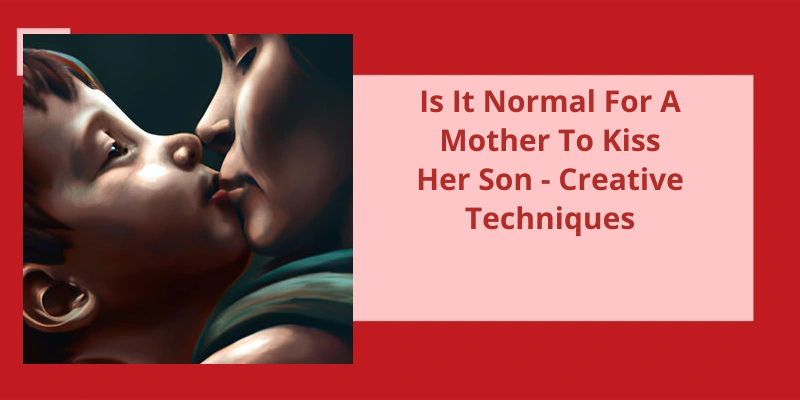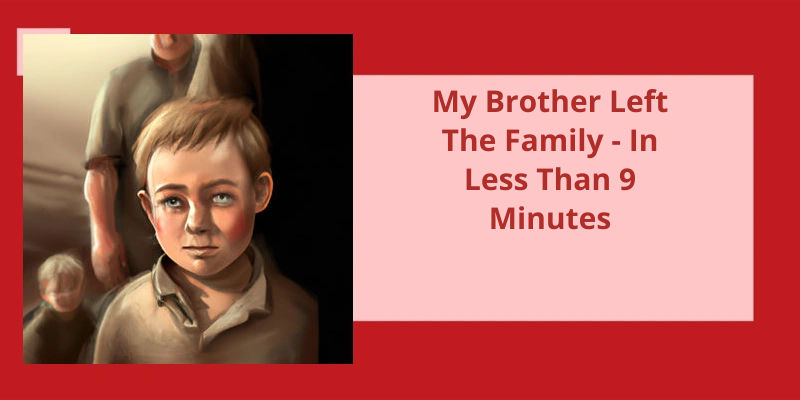In relationships, it isn’t uncommon for individuals to feel frustrated, exhausted, and fed up with their partners at some point. When this happens, it can be difficult to navigate the situation and figure out what steps to take next. It requires both partners to acknowledge and address the issues that have led to this point, as well as a willingness to work on improving the relationship. It’s important for individuals to take the time to reflect on their own actions and behaviors, while also actively listening to their partner's concerns and needs. By approaching the situation with empathy, communication, and a willingness to make changes, it’s possible to rebuild trust and strengthen the relationship.
Is It Normal to Get Fed Up With Your Boyfriend?
Many people experience a variety of emotions in their relationships, including feelings of frustration or annoyance with their partner. It’s perfectly normal to feel fed up with your boyfriend, especially if you’ve been together for a long time. However, it’s important to understand the reasons behind your feelings.
If you’re spending too much time together, it can be overwhelming and lead to feelings of irritation or annoyance. On the other hand, not spending enough time together can make you feel distant from your partner and lead to feelings of frustration. It’s important to find a balance in your relationship that works for both of you.
Lack of honesty can also lead to feeling fed up with a partner. If you feel like your boyfriend isn’t being truthful with you, it can be difficult to trust him and feel secure in the relationship. This can cause feelings of frustration and even anger.
As people grow and change, their feelings towards their partner may change as well. If you’re no longer feeling the same level of passion or love towards your boyfriend, it’s important to communicate this with him.
Ultimately, communication is key in any relationship. If you’re feeling fed up with your boyfriend, it’s important to talk to him about your feelings. This can help you both understand each other better and work towards a resolution. Whether it’s spending more quality time together, being more open and honest with each other, or reconsidering the future of your relationship, talking about your feelings can help you move forward.
Deciding to end a relationship can be a difficult and painful choice. It’s important to recognize the signs that indicate it may be time to let go. In this article, we’ve gathered insights from experts who explain some common indicators that a relationship may not be meeting your needs. These include feeling unsupported by friends and family, seeking fulfillment from sources outside the relationship, and feeling unable to ask for more from your partner. Keep reading to learn more about how to recognize when it may be time to move on.
How Do You Decide When to Give Up on a Relationship?
Ending a relationship is never an easy decision, but sometimes it’s necessary for your own well-being. One of the main indications that it’s time to let go is when your needs arent being met. If your partner isnt meeting your emotional, physical, or spiritual needs, you may find yourself seeking those needs from others. This can mean that you feel dissatisfied with the relationship, despite your efforts to make it work.
Another sign that it may be time to give up on a relationship is when youre scared to ask for more from your partner. If you feel like your needs are too much for them to handle, or youre afraid theyll react negatively, it may be a sign that the relationship isnt healthy. A healthy relationship should involve open communication and mutual support, even when it’s challenging.
Your friends and family can also offer insights into whether your relationship is worth continuing. If those closest to you don’t support your relationship, it’s worth considering why that is. Sometimes they may see things that you dont, or have concerns that you havent considered. Of course, it’s important to remember that ultimately, the decision should be yours to make.
Feeling obligated to stay with your partner can also indicate that it’s time to let go. Sometimes we may feel like we owe it to our partner to stay in the relationship, even if it’s not making us happy. It’s important to recognize that youre not responsible for anyone elses happiness but your own. Staying in an unhappy relationship out of a sense of duty is unlikely to lead to a positive outcome.
Finally, if you find yourself feeling more disconnected than connected to your partner, it may be time to consider ending the relationship. A healthy relationship should involve a strong emotional connection and a sense of shared purpose. If you don’t feel like youre growing closer over time, it may be a sign that youre growing apart instead.
While it can be difficult to let go, sometimes it’s the best thing for both parties involved. By recognizing the signs that indicate it may be time to move on, you can make a choice that supports your own well-being.
Source: How to Know When It’s Time to Let Go of Someone You Love
When you’ve been in a relationship for a while, it can be easy to become complacent and ignore warning signs that things aren’t working. However, if conflicts are dragging on for months and arguments never seem to resolve anything, it may be time to take a step back and evaluate the relationship. While it can be difficult to admit when things aren’t working, it’s important to remember that staying in a dysfunctional relationship can be damaging in the long run.
How Do You Know When Your Relationship Is Not Working?
One of the most obvious signs that a relationship isn’t working is when one or both partners consistently withdraw emotionally. When couples start to disengage from each others lives, it’s often a sign of deeper underlying issues that need to be addressed. This withdrawal can manifest in various forms such as a lack of communication, a loss of intimacy, or a general feeling of being disconnected from one another.
When couples find themselves unable to communicate effectively, it can cause a lot of frustration and resentment. This breakdown can take many different forms, such as refusing to listen to the other persons perspective, talking over each other, or simply shutting down when a conversation gets too difficult. Regardless of the form it takes, a communication breakdown is a clear indicator that something isn’t working in the relationship.
One of the biggest red flags in a relationship is when one partner seems to be taking advantage of the other. This can manifest in various forms such as emotional manipulation, financial abuse, or simply expecting the other person to do all the heavy lifting when it comes to household chores and responsibilities. When one partner consistently takes more than they give, it can start to create a sense of resentment and imbalance in the relationship that can be difficult to resolve.
It’s also important to pay attention to how you feel when you’re with your partner. If you find yourself feeling miserable, unhappy, or constantly stressed out in their presence, it’s a sign that something isn’t working. While it’s natural to experience ups and downs in any relationship, it should never be the norm to feel unhappy or unfulfilled when youre with your partner.
Finally, it’s important to pay attention to how you and your partner handle conflict. While it’s normal for couples to argue from time to time, it’s not healthy if those arguments always end in hurtful or destructive ways. When couples are unable to resolve their issues in a productive and respectful way, it’s a clear sign that they aren’t capable of working through their issues and creating a healthy and happy relationship for the long term.
As relationships progress, it’s not unusual to experience some rough patches. In fact, it’s common for people to get fed up with their partners at one point or another. While the reasons for this can be varied, it’s important to recognize what’s causing these feelings in order to address them and potentially move forward.
Is It Normal to Get Fed Up With Your Partner?
It’s quite common to get fed up with your partner. Relationships are complicated, and no matter how much we love someone, there are bound to be moments where we feel frustrated, angry, or even upset. It’s important to remember that these feelings are normal and that it’s essential to communicate with your partner to try and resolve these frustrations.
Another reason people get fed up with their partners is lying. Honesty is key, and when trust is broken, it can be challenging to rebuild. Lying can cause significant damage to a relationship, and it’s essential to address and resolve any issues regarding honesty early on before it leads to larger problems in the future.
Inconsistency is another issue that can lead to frustration in a relationship. When a partner is hot and cold with their actions, it can make their significant other feel confused and uncomfortable. Consistency is crucial in relationships, and it’s necessary to communicate about expectations and needs in the relationship.
Finally, a lack of communication can lead to frustration in a relationship. When one partner isn’t communicating their thoughts or feelings, it can lead to misunderstandings and conflict. Communication is a vital aspect of any relationship, and it’s necessary to express thoughts and feelings openly and honestly to avoid feelings of frustration or resentment.
Relationships are complex and can unravel for a variety of reasons. It’s important to understand the factors that contribute to the breakup of a relationship to avoid repeating mistakes in the future. Let’s delve deeper into some of the common reasons why people give up on love.
What Makes Someone Give Up on a Relationship?
One reason someone might give up on a relationship is because they feel overwhelmed or unsupported. It can be exhausting to constantly try to make a relationship work when the other person isnt putting in the same level of effort. If someone feels like theyre always the one doing the heavy lifting, it can lead to feelings of resentment and frustration that eventually cause them to call it quits. Additionally, if someone doesn’t feel like their partner is there for them emotionally or physically, they might feel unimportant and neglected, which can also be a catalyst for giving up.
Over time, people change and their wants and needs will inevitably shift. If a relationship no longer makes someone happy or gives them what they need, they might decide it’s better to end things than to continue on without feeling satisfied. This could look like a lack of intellectual or emotional stimulation, feeling bored or stagnant, or simply not feeling valued by their partner.
If a partner is too controlling or doesn’t allow for enough autonomy or personal growth, it can make someone feel trapped. This could manifest in ways like not being allowed to see friends or family, being constantly monitored or questioned, or feeling like their life is on hold because their partner is more interested in maintaining the status quo than in moving forward as individuals or as a couple.
This could be because of physical changes, such as weight gain or aging, or because of emotional or mental shifts. If someone no longer feels a spark or connection with their partner, it can be difficult to maintain intimacy or the desire to be together. Additionally, if someone has experienced a breach of trust, such as infidelity, it can make it hard to regain that attraction.
Relationships require effort and attention to maintain the spark that brought two people together in the first place. However, sometimes even the strongest relationships can hit a roadblock where one or both partners can feel tired or unfulfilled. When this happens, it’s important to evaluate the root cause and work together to reignite the flame.
Why Do I Get Tired of My Partners?
It’s not uncommon to feel tired of your partner at some point in a relationship. It could be because of a lack of emotional or physical connection, which can happen when youve been together for a while. Perhaps the excitement of the early days has waned, and you find yourself longing for that spark that used to be there. It could also be a sign that youre simply not compatible, and that the relationship has run it’s course.
Do you feel like your needs arent being met? Are there underlying issues in the relationship that are causing tension? It may be helpful to talk to your partner openly and honestly about whats going on.
Perhaps youre dealing with work or family-related stress, and your relationship is taking a backseat. It’s important to realize that this is a common issue, and that it doesn’t necessarily mean that the relationship is over. Sometimes all it takes is a little extra effort to rekindle the romance.
It’s also worth looking at the state of your physical intimacy. Are you and your partner still regularly intimate, or has that aspect of your relationship fizzled out? If you feel like your sex life has become routine or boring, it’s worth exploring new ways to spice things up. This could be something as simple as trying out new positions or experimenting with sex toys.
It’s not always going to be sunshine and rainbows, and there will be times when you don’t feel as connected to your partner as you used to. Whats important is recognizing these feelings and working with your partner to address them. With a little effort and communication, you can get back to feeling the love and excitement you’d at the beginning of your relationship.
Conclusion
In conclusion, dealing with a partner who’s fed up with you requires a delicate balance of self-reflection, communication, and action. It’s important to take a step back and examine your behavior and actions that may have led to the frustration. It's equally important to communicate with your partner, actively listen to their concerns, and work together to find solutions. This process takes time and patience, but with effort and dedication from both parties, it's possible to repair the relationship. Remember to always be open and honest, respect boundaries, and prioritize the health and well-being of both yourself and your partner.






